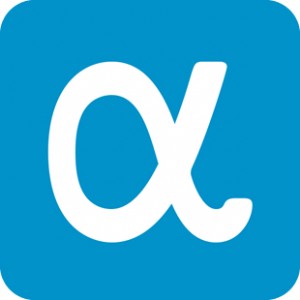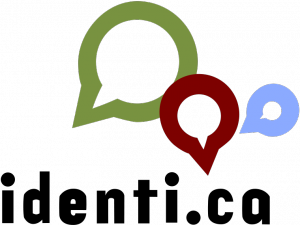
Courtesy of AJ Cann/Flickr
In May 2013, Facebook announced that it had 1.1 billion users, 665 million of which were active on the site each day. The three major global social networks (Facebook, Google+, and Twitter) have all experienced huge growth in the last few years. According to the GlobalWebIndex, of the global Internet population approximately 51% use Facebook on a monthly basis, 25% use Google+, and 21% use Twitter. Despite the rapid growth of these social networks, many users have become dissatisfied with their business models, political practices, constantly changing posting policies, and undemocratic forms of governance. Aside from the concerns over PRISM, Facebook has recently drawn attention for its blocking pictures of breastfeeding mothers or the company’s handling of rape joke memes spreading through their network. Activists and political dissidents in particular have found these social media sites stifling and sometimes dangerous, but often find themselves with few alternatives to spread their messages online.
As a result, several interesting social media alternatives have recently been created to address these concerns and protect both privacy and dissent online. While many social network projects have launched over the past few years, few alternatives remain in active development. Below is a curated list of the best current alternatives for people with moderate computers skills concerned with privacy, control of their information, and networking outside the control of governments or corporations.
 Diaspora: This nonprofit, user-owned, social network consists of a group of independently owned “pods” that interoperate to form the network. Since its launch in 2010 by four students at New York University’s Courant Institute of Mathematical Sciences, Diaspora has been one of the most popular alternative social media sites. As of June 2013, Diaspora reports it has 405,551 registered accounts (which includes users on the main pod and connected people from other pods) and 2,270,599 estimated users on the most popular pod (estimated because that information is not public) participating in this distributed social network. Diaspora allows for pseudonyms, ensures users own their content, and because the network is distributed by other users who install the freeware and setup web servers, the network cannot easily be disrupted or its users surveilled.
Diaspora: This nonprofit, user-owned, social network consists of a group of independently owned “pods” that interoperate to form the network. Since its launch in 2010 by four students at New York University’s Courant Institute of Mathematical Sciences, Diaspora has been one of the most popular alternative social media sites. As of June 2013, Diaspora reports it has 405,551 registered accounts (which includes users on the main pod and connected people from other pods) and 2,270,599 estimated users on the most popular pod (estimated because that information is not public) participating in this distributed social network. Diaspora allows for pseudonyms, ensures users own their content, and because the network is distributed by other users who install the freeware and setup web servers, the network cannot easily be disrupted or its users surveilled.
 App.net: In July 2012, this platform evolved beyond being a place for developers to showcase new apps and became a full-fledged social network. The design of App.net is fairly similar to Twitter, but with one big difference. Instead of selling user data to advertisers, the site requires users and developers to pay subscription fees for premium accounts ($5 monthly, $36 yearly, or $100 a year for developers). There are no ads on App.net, but more importantly for social activists and people concerned with controlling their data, App.net will only share information with third party vendors the service needs to work (like payment processors for accounts) and law enforcement (if proper legal channels are observed). When a user deletes something from App.net, the company makes sure it’s gone from their servers within two weeks. It’s not a completely private social network, but it’s close.
App.net: In July 2012, this platform evolved beyond being a place for developers to showcase new apps and became a full-fledged social network. The design of App.net is fairly similar to Twitter, but with one big difference. Instead of selling user data to advertisers, the site requires users and developers to pay subscription fees for premium accounts ($5 monthly, $36 yearly, or $100 a year for developers). There are no ads on App.net, but more importantly for social activists and people concerned with controlling their data, App.net will only share information with third party vendors the service needs to work (like payment processors for accounts) and law enforcement (if proper legal channels are observed). When a user deletes something from App.net, the company makes sure it’s gone from their servers within two weeks. It’s not a completely private social network, but it’s close.
 Tent.io: This Twitter-like (but not Twitter-clone) alternative offers many of the same advantages App.net boasts, but rests on an entirely different method for distributing information. Tent is an open Internet protocol, like email or TCP/IP, that can be used to run a Tent server (via Tent.is) or connect several social networks together. Tent.is offers users the ability to run their own server, lets them share anything, and is designed to help users migrate from other social medias. Tent can also be run as a Tor hidden service, which can allow activists to communicate without being traced, and because Tent is decentralized, it cannot be blocked the same way Twitter has been in several countries. Tent also touts itself as a better alternative even to email since users can change their address and the followers come with them. Tent also argues it fosters innovation since applications can be developed for Tent without needing to ask for permission from the protocol’s owners. The Tent protocol can be used with Tent.is or be used independently to grow other networks. Tent is a bit more technical than the other alternatives featured here, but its flexibility and expandability mean it’s likely to continue developing.
Tent.io: This Twitter-like (but not Twitter-clone) alternative offers many of the same advantages App.net boasts, but rests on an entirely different method for distributing information. Tent is an open Internet protocol, like email or TCP/IP, that can be used to run a Tent server (via Tent.is) or connect several social networks together. Tent.is offers users the ability to run their own server, lets them share anything, and is designed to help users migrate from other social medias. Tent can also be run as a Tor hidden service, which can allow activists to communicate without being traced, and because Tent is decentralized, it cannot be blocked the same way Twitter has been in several countries. Tent also touts itself as a better alternative even to email since users can change their address and the followers come with them. Tent also argues it fosters innovation since applications can be developed for Tent without needing to ask for permission from the protocol’s owners. The Tent protocol can be used with Tent.is or be used independently to grow other networks. Tent is a bit more technical than the other alternatives featured here, but its flexibility and expandability mean it’s likely to continue developing.
 GlassBoard: Featuring a very simple and comprehensive privacy policy, GlassBoard is probably the easiest to use of the alternative social networks featured here. GlassBoard’s innovation in social networking is to make money by charging a small user fee rather than sell information to advertisers. Perhaps because they know many people have indicated they would not pay for access to a social network, even if it meant more control over their information, GlassBoard does offer a free account with some limitations, and premium accounts with more storage or access to APIs. GlassBoard also offers iPhone and Android apps, all user data is encrypted on GlassBoard’s servers, and they won’t sell your personal information for targeting ads. GlassBoard does not have privacy settings. Instead, everything a user does on the service is private and can only be seen by people they approve. While GlassBoard primarily focuses on providing businesses with a private communications network, anyone willing to have some storage limitations or pay a bit for a premium account can enjoy a very simple, secure, and mobile social network.
GlassBoard: Featuring a very simple and comprehensive privacy policy, GlassBoard is probably the easiest to use of the alternative social networks featured here. GlassBoard’s innovation in social networking is to make money by charging a small user fee rather than sell information to advertisers. Perhaps because they know many people have indicated they would not pay for access to a social network, even if it meant more control over their information, GlassBoard does offer a free account with some limitations, and premium accounts with more storage or access to APIs. GlassBoard also offers iPhone and Android apps, all user data is encrypted on GlassBoard’s servers, and they won’t sell your personal information for targeting ads. GlassBoard does not have privacy settings. Instead, everything a user does on the service is private and can only be seen by people they approve. While GlassBoard primarily focuses on providing businesses with a private communications network, anyone willing to have some storage limitations or pay a bit for a premium account can enjoy a very simple, secure, and mobile social network.
 Identi.ca: Identi.ca is another micro-blogging service similar to Twitter, but offers many features Twitter does not such as XMPP support and the ability to freely export personal and “friend” data. Identi.ca enjoyed early success when more than 8,000 people registered for the service within the first 24 hours of its public launch in July 2008. For those concerned with controlling their information, Identi.ca will publish all posts under the Creative Commons Attribution 3.0 license by default, but paying customers have to option to choose a different license. In June 2013, Identi.ca began migrating to the pump.io software platform in order to offer more features, and its development is likely to continue. Setting up the free and open source software on a server requires a bit more technical skill than most of the other alternatives presented here, and joining might be delayed until the migration to pump.io finishes, but this open source social network is worth watching.
Identi.ca: Identi.ca is another micro-blogging service similar to Twitter, but offers many features Twitter does not such as XMPP support and the ability to freely export personal and “friend” data. Identi.ca enjoyed early success when more than 8,000 people registered for the service within the first 24 hours of its public launch in July 2008. For those concerned with controlling their information, Identi.ca will publish all posts under the Creative Commons Attribution 3.0 license by default, but paying customers have to option to choose a different license. In June 2013, Identi.ca began migrating to the pump.io software platform in order to offer more features, and its development is likely to continue. Setting up the free and open source software on a server requires a bit more technical skill than most of the other alternatives presented here, and joining might be delayed until the migration to pump.io finishes, but this open source social network is worth watching.
For those not ready to completely abandon Facebook, Twitter, or Google+ there are still a few options for managing how user data is used. Two good browswer add-ons for determining exactly where your data is going are Collusion for Mozilla Firefox and PrivacyScore for Google Chrome. To keep Facebook, Google, and Twitter from tracking you (and to speed up your browser), the Disconnect extension works well with Firefox, Chrome, and Safari. Finally, to opt out of other advertising that tracks users, the Network Advertising Initiative’s website will show who is tracking a user’s browser and how to disable it.

Pingback: Social Network Alternatives | Political Query